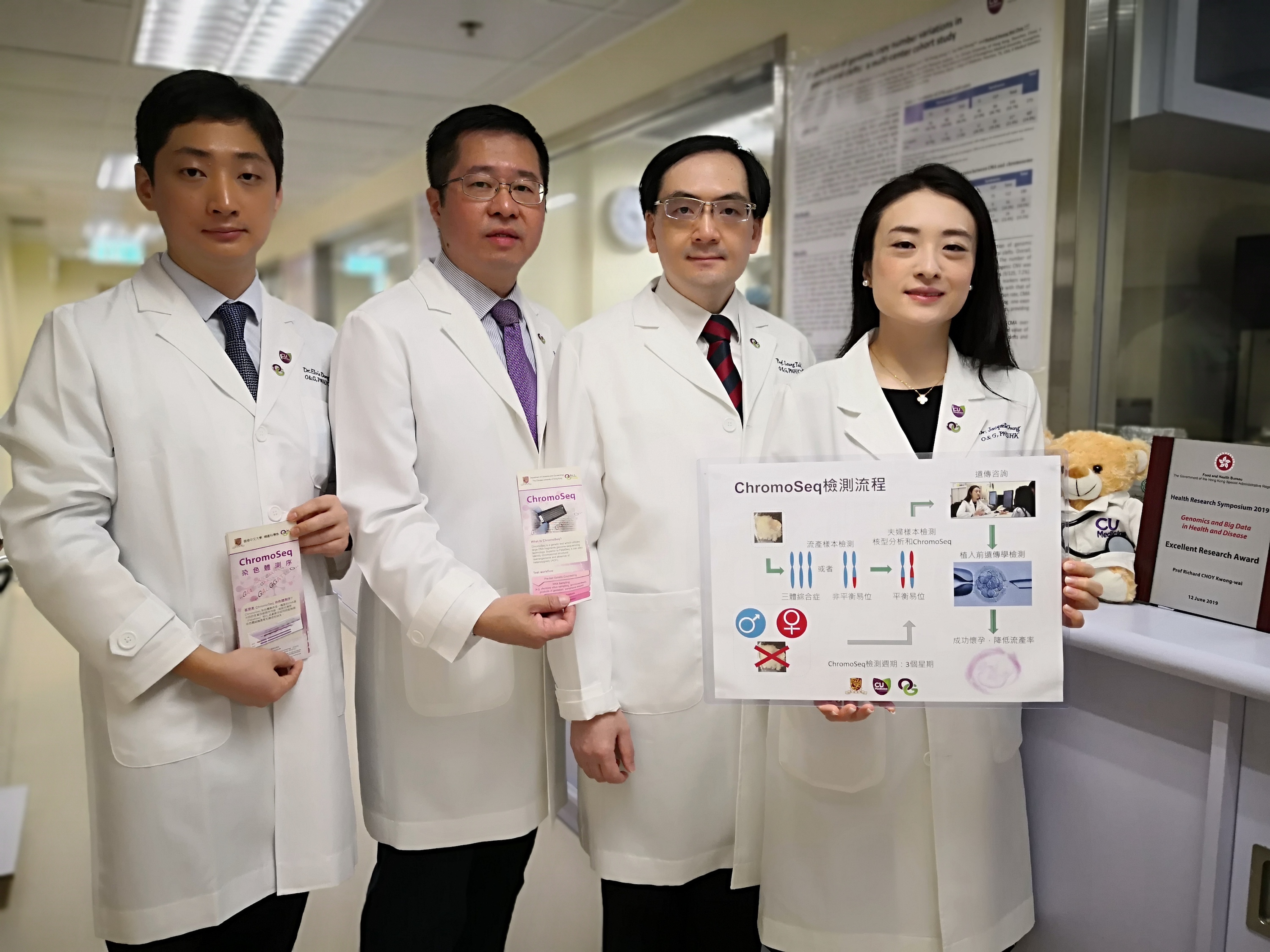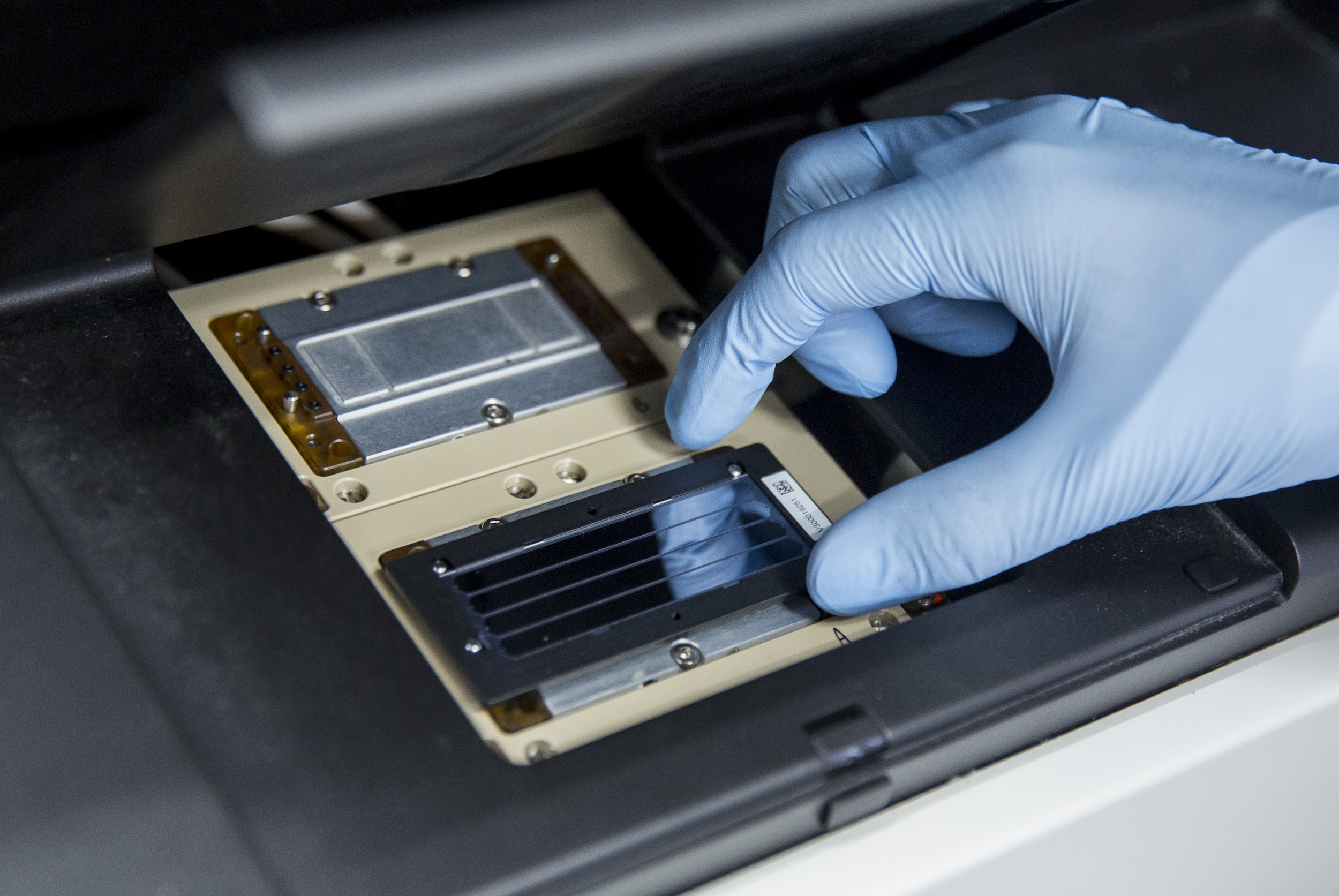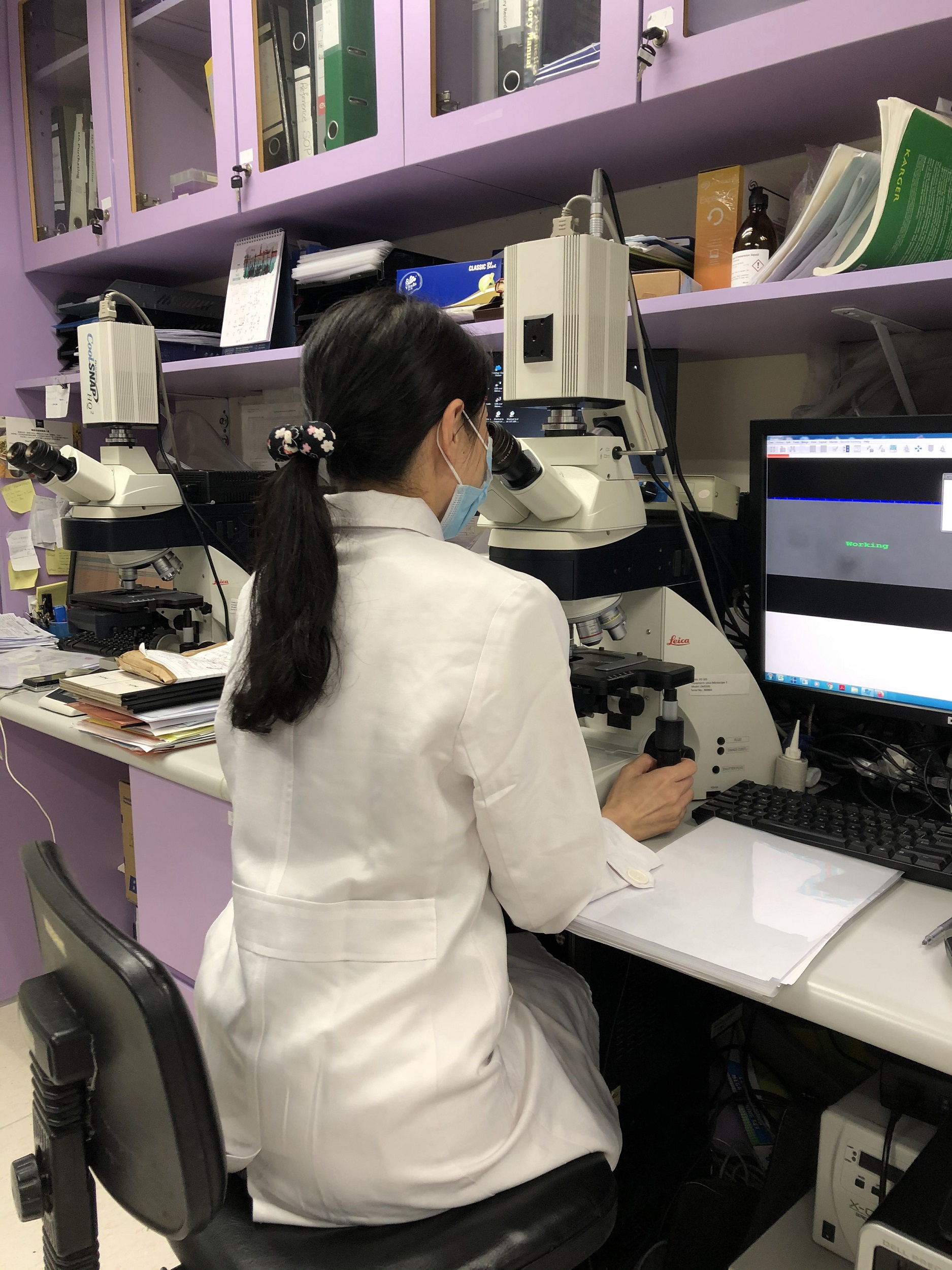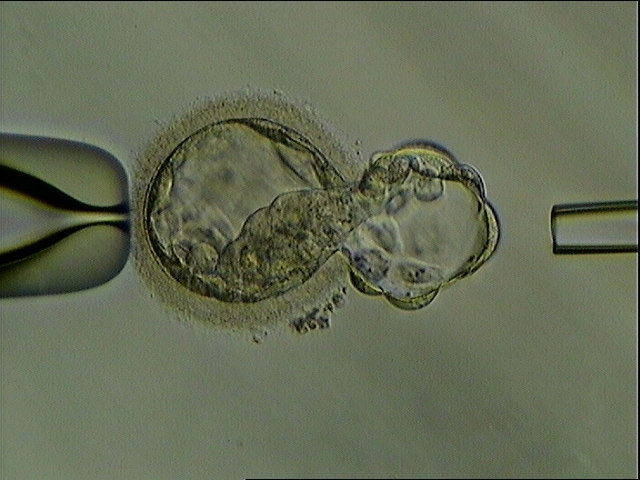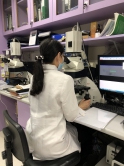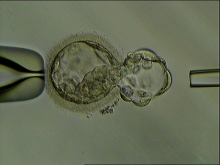News Centre
CUHK Pioneers Whole Genome Sequencing for Identifying the Chromosomal Abnormalities in Couples with Recurrent Miscarriages
Recurrent miscarriages (RM) cause frustration and trauma to couples who want to have a child. However, not all couples can find out about the underlying reasons because of medical constraints. The Department of Obstetrics and Gynaecology (O&G) of the Faculty of Medicine at The Chinese University of Hong Kong (CU Medicine) has successfully developed a new genome sequencing test called ChromoSeq to identify the genetic defects for married couples, who suffered from RM. When compared with the conventional karyotyping analysis, ChromoSeq offers greater accuracy in detecting potential genetic abnormalities associated with RM in affected couples. The team conducted a study on the innovation and the findings were recently published in the international journal American Journal of Human Genetics.
Parental chromosomal and genetic abnormalities—one of the potentially avoidable causes of RM
RM refers to two or more consecutive miscarriage, and it affects 1-2% of couples worldwide. Affected couples not only require multiple medical or surgical treatment(s) following their miscarriages, they may also come under strong psychological, marital or social stress. In 40-50% of these cases, the underlying causes can be identified, including endocrionological, immunological, anatomical pathologies. Chromosomal and genetic abnormalities also account for 2-5% of the causes identified by using conventional karyotyping analysis. Remaining half of the cases, the etiology remains unknown even after extensive investigation(s). However, some of these cases have subtle chromosomal and genetic abnormalities that are not detectable by the conventional tests. If RM couples are identified to have chromosomal or genetic abnormalities, they may benefit from in-vitro fertilization (IVF) and pre-implantation genetic testing (PGT), which helps in the selection of genetically normal embryos for implantation, and hence reduce the subsequent risk of miscarriage.
Professor Tak Yeung LEUNG, Chairman of the Department of Obstetrics and Gynaecology, CU Medicine explained, “RM carries psychological and financial burden for the affected couples. Anatomic factors, antiphospholipid syndrome, endocrinological and chromosomal abnormalities are the most commonly recognised etiologies for RM. Yet in many cases, the causes remain unknown. In such situation, it is often difficult to manage or help the couples.”
Genome sequencing identifies additional and clinically relevant chromosomal abnormalities compared with conventional karyotyping
The O&G Department of CU Medicine is the first research team in the Asia Pacific region to develop a genome sequencing based test for genetic prenatal diagnosis (FetalSeq), which was launched to clinical service last year. This year, the team is introducing an advanced version of the test (namely ChromoSeq) to provide an even more comprehensive and precise detection of chromosomal abnormalities, which not only cover micro-deletion/micro-duplication, but also chromosomal identify structural rearrangement and absence of heterozygosity.
This test is particularly useful in detecting any chromosomal rearrangements such as balanced translocations in RM couples, which may then result in unbalanced translocation (deletion and duplication) in their offspring leading to miscarriages and/or congenital defects.
Dr. Elvis DONG, Research Assistant Professor of the Department of Obstetrics and Gynaecology, CU Medicine remarked, “Karyotyping is a low-resolution technique relying on the quality of the experiment (banding level) and the view of chromosomes under microscope, whereas genome sequencing is a superior technique with one million times higher in resolution. We demonstrated that there are couples who have chromosomal rearrangements that can’t be detected by karyotyping. Our team has developed a new approach for analyzing genome-wide chromosomal abnormalities by utilizing genome sequencing with an in-house analytic pipeline namely ChromoSeq. We have demonstrated its robustness in the detection of chromosomal rearrangements such as translocation and inversions at higher resolution and that it provides additional and cytogenetically relevant information for RM couples compared to conventional karyotyping.”
Dr. Jacqueline Pui Wah CHUNG, Clinical Associate Professor of the Department of Obstetrics and Gynaecology, CU Medicine commented, “In clinical management, a genetic study on the abortus is recommended by the professional societies. However, the aborted specimen is often not available for most couples at the time they are referred to our clinic. Hence, checking the couples for any hereditary abnormalities will be very useful. When a chromosomal abnormality is identified in the couples, PGT can be recommended for them so as to reduce the rate of recurrent miscarriage.”
PGT is a genetic test to identify chromosomal abnormalities or single gene disorder in the embryos before they are implanted to the uterus. It serves the purpose of excluding embryos affected by abnormal gain and loss of important genomic segments due to the parental chromosomal abnormalities. It has been proven that for couples with known chromosomal rearrangements, the miscarriage rate of their subsequent pregnancies is significantly lower after PGT than when they pursue natural conception.
To evaluate the accuracy, efficacy, and incremental yield of ChromoSeq, the CUHK team collaborated with Shandong University in conducting a back-to-back comparison with conventional karyotyping in 1,090 RM couples. Below are the main findings:
- ChromoSeq yielded results in 1,077 of 1,090 couples (success rate at 98.8%) and balanced chromosomal abnormalities in 11.7% (126/1,077) of couples.
- Of the 126 couples, 39.7% (50/126) had preceding normal karyotyping results in both partners.
- Overall, ChromoSeq identified underlying chromosomal aberrations in 1 in 9 RM-affected couples. Follow-up study demonstrated a significantly higher rate of miscarriage or fetal anomalies in their subsequent nature conception.
- Furthermore, this study also provides evidence that by applying PGT for these couples, a significant reduction in the miscarriage rate was found compared with couples with normal chromosomes. It demonstrated that PGT would be a potential management for these couples.
Dr. DONG remarked, “With genome-wide detection scope and in single nucleotide resolution, ChromoSeq shows a great potential advantage in identifying subtle genetic etiologies in RM couples, particularly for those with normal karyotyping results. The technology provides more precise prognostic information to the couples and family, which is important for the further management.”
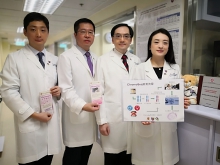
The O&G Department of CU Medicine is the first research team in the Asia Pacific region to develop genome sequencing based tests for genetic prenatal diagnosis. The team successfully developed a new genome sequencing test called ChromoSeq to identify the genetic defects for married couples, who suffered from recurrent miscarriages. (From left) Dr. Elvis DONG, Research Assistant Professor; Professor Richard Kwong Wai CHOY, Professor; Professor Tak Yeung LEUNG, Chairman of the Department; Dr. Jacqueline Pui Wah CHUNG, Clinical Associate Professor from the Department of O&G, CU Medicine.
